Cats may exhibit clingy behavior for several reasons, including health issues, separation anxiety, boredom, past trauma, or changes in the environment. Addressing clingy behavior in cats involves establishing a consistent routine, providing interactive toys and playtime, creating a comfortable space, and using positive reinforcement. In cases where underlying health issues are suspected, consulting a veterinarian is essential.
Estimated reading time: 5 minutes
Possible Reasons Why Your Cat May Be Clingy
Cats are wonderful and often affectionate creatures. But sometimes, you might find that your cat won’t leave you alone. Have you ever wondered why? Here are some common reasons that could explain this type of behavior:
Health Issues
If your cat is following you around more than usual, or you notice sudden clinginess, it could be a sign of health problems. Your feline friend may be feeling ill and looking for comfort. If you notice other signs of illness, like excessive meowing or a sudden change in behavior, it’s best to consult a veterinarian.
Separation Anxiety
Cats can become clingy if they suffer from separation anxiety. If your cat follows you around the house and seems distressed when you leave them alone, they might be going through a tough time. Unlike dogs, cats don’t always show this emotion, but they can also suffer from separation anxiety.
Boredom
Cats like to play, and boredom could be a cause for clinginess. If your cat may be following you around looking for attention and playtime, it might be a sign that they need more interaction. Provide some cat toys or engage in regular playtime to keep them entertained.
Past Trauma
An adopted cat, or one that has experienced past trauma like being separated from its mother too early, may follow you around, seeking security and comfort.
Changes in the Environment
Moving to a new home, introducing a new pet, or any sudden change in the environment might make your cat clingy. Cats tend to like stability, and changes can be anything but comfortable for them.
Understanding the reasons behind your cat’s clinginess is the first step to helping them. If your cat’s clingy behavior continues or you suspect something is wrong, speak to your veterinarian.
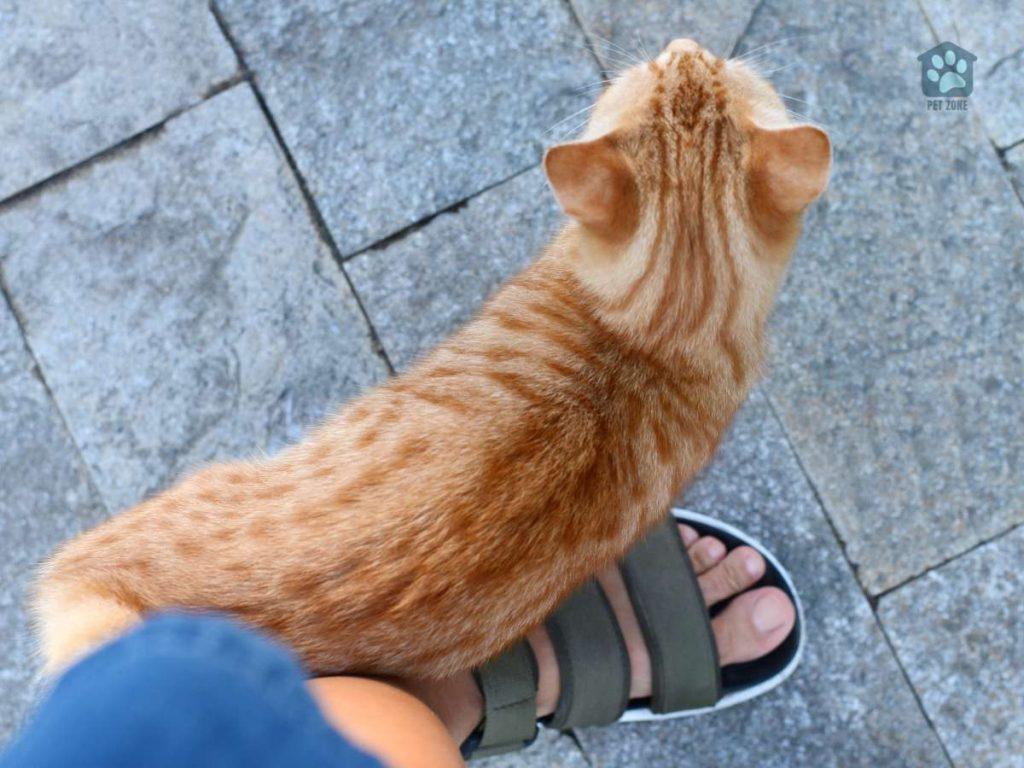
How to Help Your Cat Leave You Alone
Cats can be extremely affectionate, but sometimes you might need a break. If your cat won’t leave you alone, there are steps you can take to help them become more independent:
Establish a Consistent Routine
Cats love routine. Feeding time, playtime, and cuddling should happen at the same times every day. This consistency helps your cat know what to expect and can reduce clinginess.
Engage in Playtime and Provide Interactive Toys
If you want your cat to leave you alone, make sure they have plenty of toys to play with. Interactive toys can keep your cat entertained and mentally stimulated. Engaging in playtime with them can also make your cat feel loved and satisfied, so they’ll be less likely to follow you around the house.
Create a Safe and Comfortable Space
Make a cozy spot where your cat can retreat for some alone time. This space should include a comfortable bed, fresh water, and maybe some cat toys. Your cat will know that they’re safe here, and it will help your cat overcome the need to be constantly by your side.
Use Positive Reinforcement
If your cat leaves your side and goes to play or rest somewhere else, reward them with a treat or affectionate petting. Positive reinforcement can teach your cat that it’s good to be independent.
Helping your cat leave you alone is not about pushing them away but understanding what your cat needs and providing it. If you are consistent in your interactions with your cat, they’ll learn when it’s time for affection and when it’s time to be on their own.
By taking these steps, you can help your cat become less clingy and enjoy a more balanced relationship with your feline friend. If the clinginess continues, take them to the vet to rule out any underlying issues. Your vet can provide guidance specific to your cat’s needs.
Consulting the Vet about Clingy Behavior
Sometimes, a cat’s clingy behavior might indicate an underlying health issue or concern that needs professional attention. Here’s what you can do:
Rule Out Underlying Health Issues
If your cat has suddenly become clingy, it might be telling you that something is wrong. Cats have a reputation for hiding pain or illness, so a change in behavior like sudden clinginess might be a sign of distress. Speak to your veterinarian about your cat’s actions, especially if you notice any other signs of illness. Your vet can conduct an examination to determine if there’s an underlying health problem causing your cat to follow you around.
Consulting the vet is an essential step if you’re wondering why your cat won’t leave you alone. Your veterinarian will understand your cat’s individual needs and offer guidance to help your cat overcome clingy behavior. If your cat is suffering from separation anxiety or any other health-related issue, the vet can provide appropriate treatment or recommend a specialist.
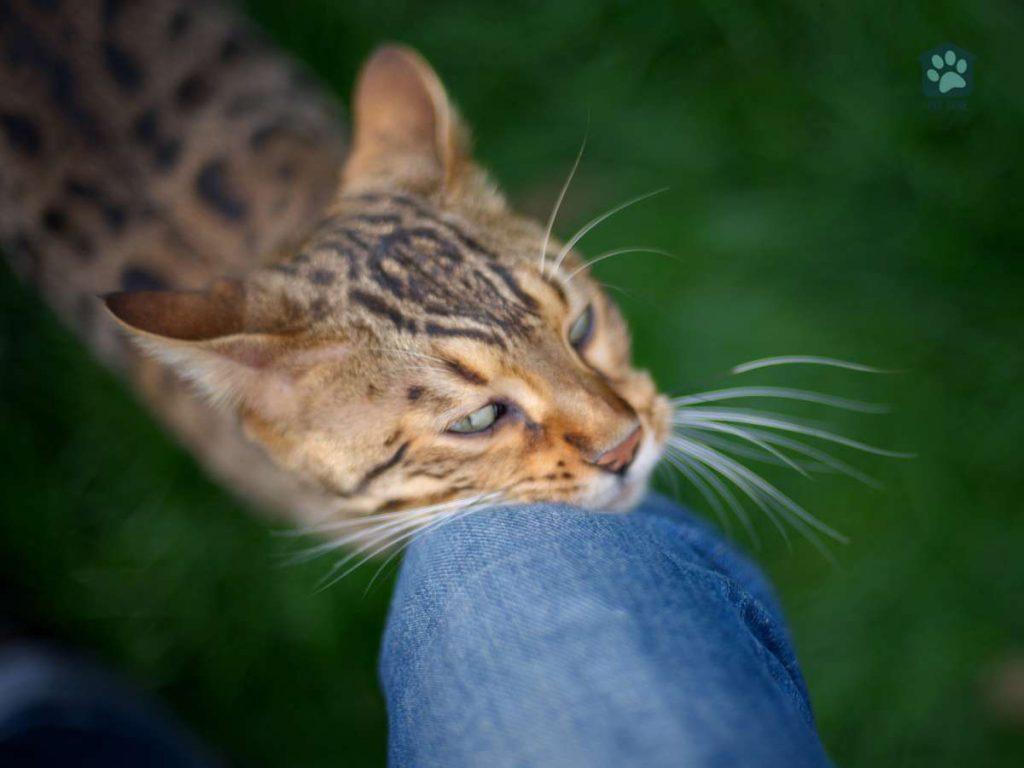
Understanding Your Cat’s Clingy Behavior
Understanding why your cat may be clingy and working to meet their needs with compassion is key. Whether it’s separation anxiety, boredom, or signs of illness, recognizing the reasons behind the clingy behavior helps you address it effectively.
If you’ve moved to a new home, adopted a new pet, or noticed a sudden change in your cat’s behavior, these factors might be contributing to your cat’s need to be near you. Working closely with a veterinarian, being patient, and adjusting your routine can make your cat feel secure and reduce clingy behavior.
Whether it’s feeding time or playtime, or you’re just moving to a new room, your cat loves being with you. Understanding and responding to their needs creates a healthy relationship and a happy cat.
Feel free to share your thoughts and experiences in the comments below, and don’t hesitate to share this article with other cat owners who might find it helpful. Your comments and shares help others understand their feline friends better!
As an Amazon Associate I earn from qualifying purchases.
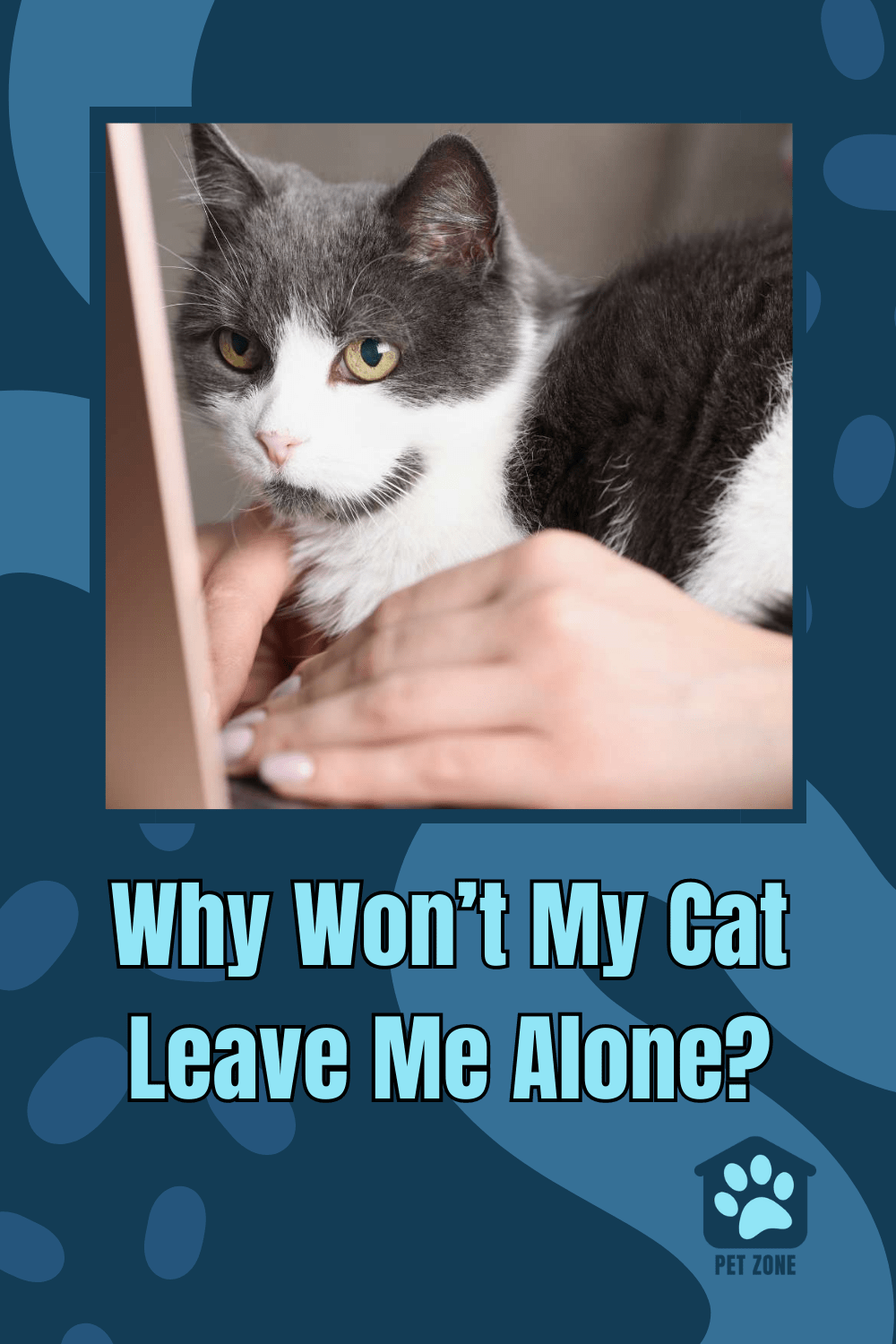


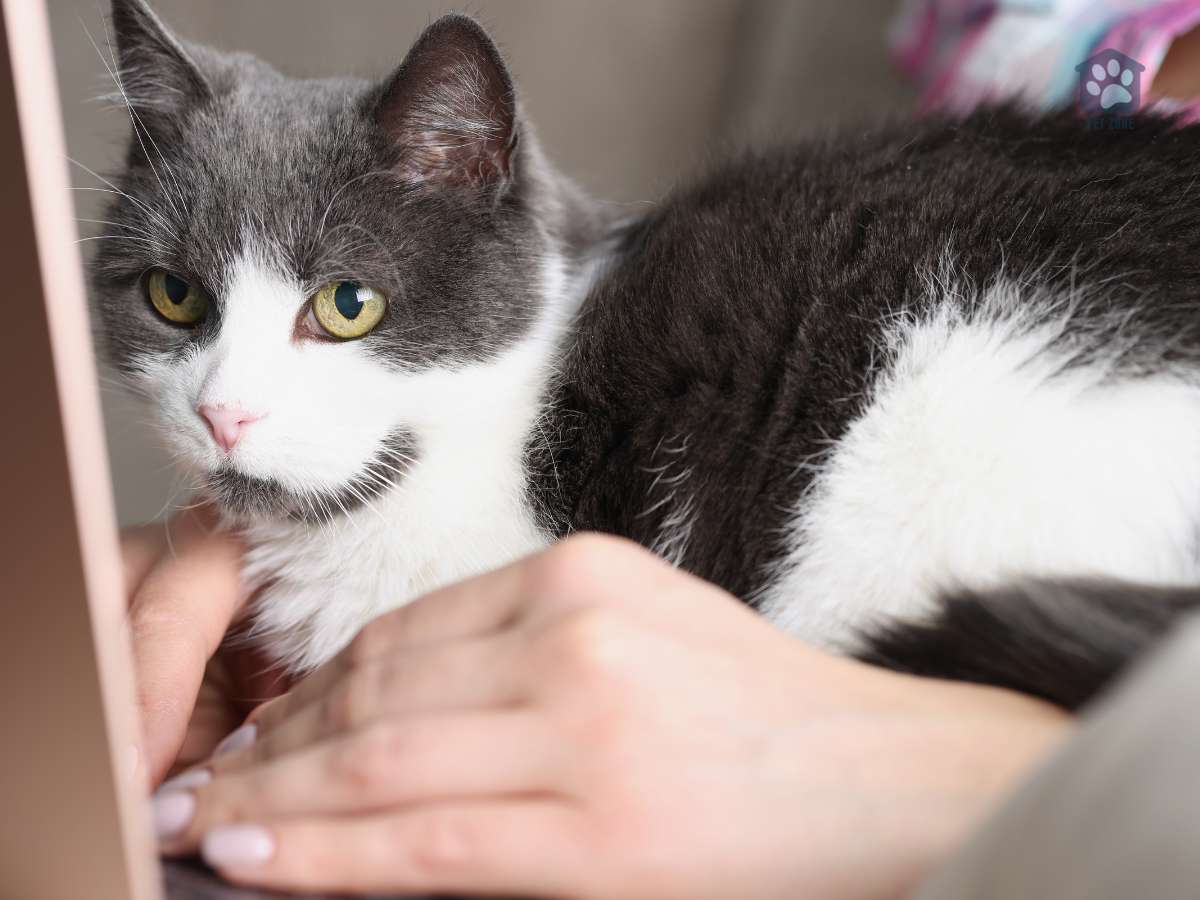


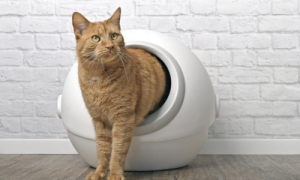



It was a long time since I had a cat but I do recall some episodes like this one. I remember I found it hard to do my job because of her. Thanks for sharing these useful tips for cat owners. It’s so incredible to take care of a pet.